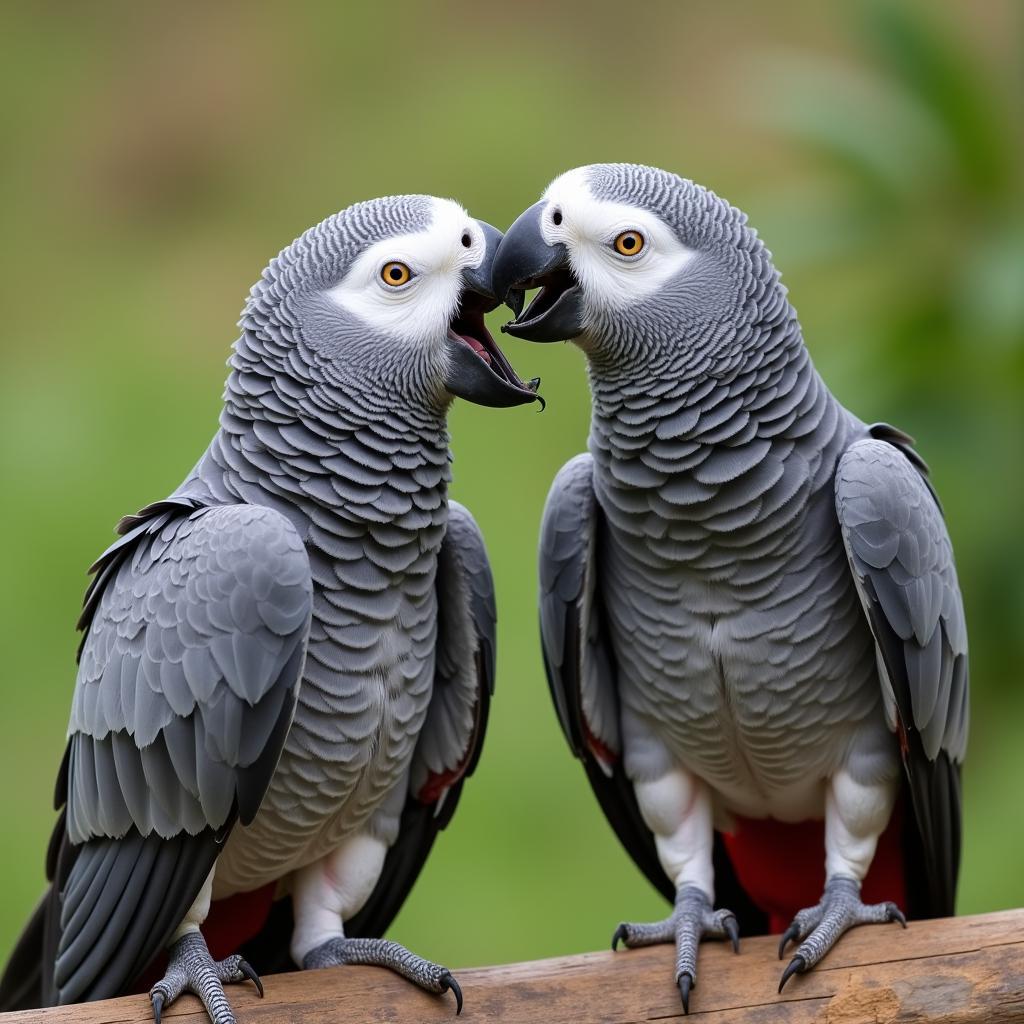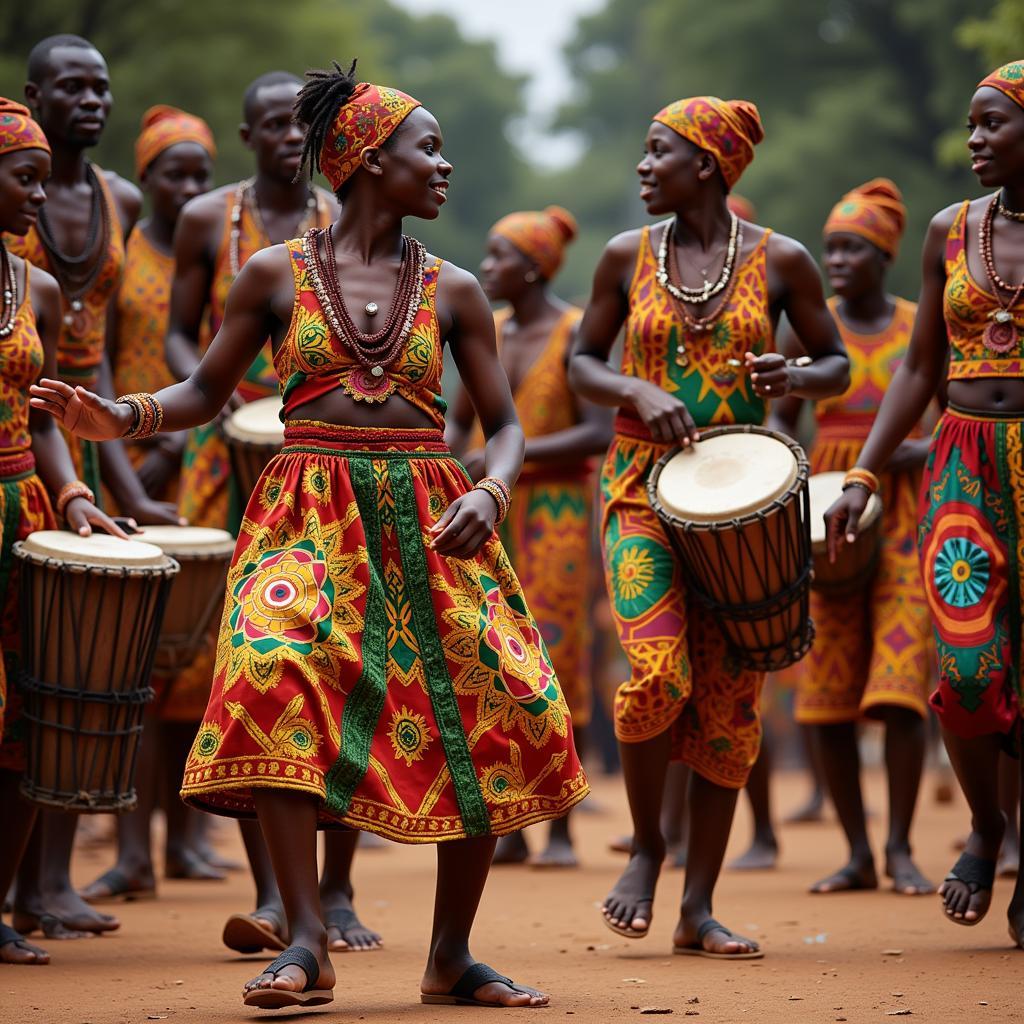A Journey Through the Diverse Landscape of African Religion
African Religion is a rich and diverse tapestry woven from centuries of spiritual beliefs and practices. Far from a monolithic entity, it encompasses a vast array of traditions, rituals, and cosmologies that have shaped the cultural identity and social fabric of the continent. This exploration delves into the heart of African religion, uncovering its fundamental tenets, exploring its multifaceted expressions, and shedding light on its profound impact on the lives of millions.
Delving Deeper: Key Concepts in African Religion
At the core of most African religions lies a profound reverence for ancestors and a deep connection to the natural world. Ancestors are not merely figures of the past but are revered as intermediaries between the living and the divine, their wisdom and guidance sought after in times of need.
The natural world, teeming with life and imbued with spiritual energy, is also central to African religious beliefs. From majestic mountains to flowing rivers, elements of nature are often seen as manifestations of the divine, worthy of respect and veneration. This interconnectedness fosters a sense of harmony and balance between humanity and the environment.
The Many Faces of African Religion: Exploring the Diversity
African religion cannot be confined to a singular definition, as it encompasses a spectrum of beliefs and practices. Some of the most well-known include:
-
Yoruba Religion (West Africa): Originating in present-day Nigeria, Yoruba religion is characterized by a complex pantheon of deities (Orishas) who embody different aspects of nature and human experience. Rituals often involve drumming, divination, and offerings to appease and seek guidance from the Orishas.
-
Akan Religion (West Africa): Practiced by the Akan people of Ghana and Ivory Coast, this tradition emphasizes the concept of a Supreme Being who governs a hierarchy of lesser deities and spirits. Ancestors play a vital role, and rituals often involve libations, offerings, and consultations with oracles.
-
Dinka Religion (East Africa): The Dinka people of South Sudan believe in a high god, Nhialic, who created the world and interacts with humanity through spirits residing in nature. Cattle hold significant religious importance, representing wealth and serving as intermediaries between the divine and humans.
This is but a glimpse into the vast diversity of African religions. Each ethnic group and region boasts its unique set of beliefs, rituals, and deities, contributing to the intricate mosaic of African spirituality.
The Enduring Legacy: African Religion’s Impact and Influence
Despite the rise of Christianity and Islam across the continent, traditional African religions continue to thrive and influence various aspects of life. They provide a framework for social order, ethical conduct, and artistic expression. Music, dance, storytelling, and visual arts are often intertwined with religious beliefs, serving as powerful mediums to connect with the spiritual realm and transmit cultural values across generations.
Furthermore, the influence of African religion extends far beyond the continent. Through the transatlantic slave trade, elements of these traditions were carried to the Americas, giving rise to new syncretic religions such as Santeria in Cuba and Candomblé in Brazil. These religions, while incorporating elements of Catholicism, retain core aspects of African spirituality, showcasing the resilience and adaptability of these belief systems.
African Religion in a Changing World: Challenges and Continuities
In a rapidly globalizing world, African religions face challenges such as modernization, urbanization, and the pressures of religious conversion. Yet, they demonstrate remarkable resilience, adapting to new contexts while preserving their core values and practices. From bustling cities to remote villages, African religions continue to provide meaning, purpose, and a sense of identity for millions.
The study of African religion is an ongoing journey of discovery, challenging preconceived notions and revealing the depth and complexity of these ancient spiritual traditions. As we delve deeper into this fascinating realm, we gain a richer understanding not only of Africa’s past and present but also of the universal human search for meaning, connection, and transcendence.
FAQ
1. What is the most common belief in African religions?
While diverse, most African religions share a belief in a Supreme Being, the importance of ancestors, and a strong connection to the natural world.
2. How are African religions passed down through generations?
Oral tradition is paramount, with stories, songs, proverbs, and rituals transmitting beliefs and practices.
3. Did African religions influence other religions around the world?
Yes, African religious practices influenced the development of syncretic religions in the Americas, such as Santeria and Candomblé, through the transatlantic slave trade.
4. What challenges do African religions face today?
Modernization, religious conversion, and misrepresentation pose challenges. However, these religions continue to adapt and thrive in various forms.
5. Where can I learn more about specific African religions?
You can explore resources like “African History and Religion Courses Review“, “African Countries by Religion” or delve into resources focused on specific traditions like “African Influence on Religion in the Caribbean” for a Caribbean perspective.
Need More Information?
For a deeper dive into this fascinating topic, consider exploring further resources like “African History and Religion Courses” or academic reviews like this “African History and Religion Review“. Understanding African religion requires delving into specific cultural contexts and traditions.
Have more questions about African religion? Contact us at +255768904061, email us at kaka.mag@gmail.com or visit us at Mbarali DC Mawindi, Kangaga, Tanzania. We are here to help 24/7!


